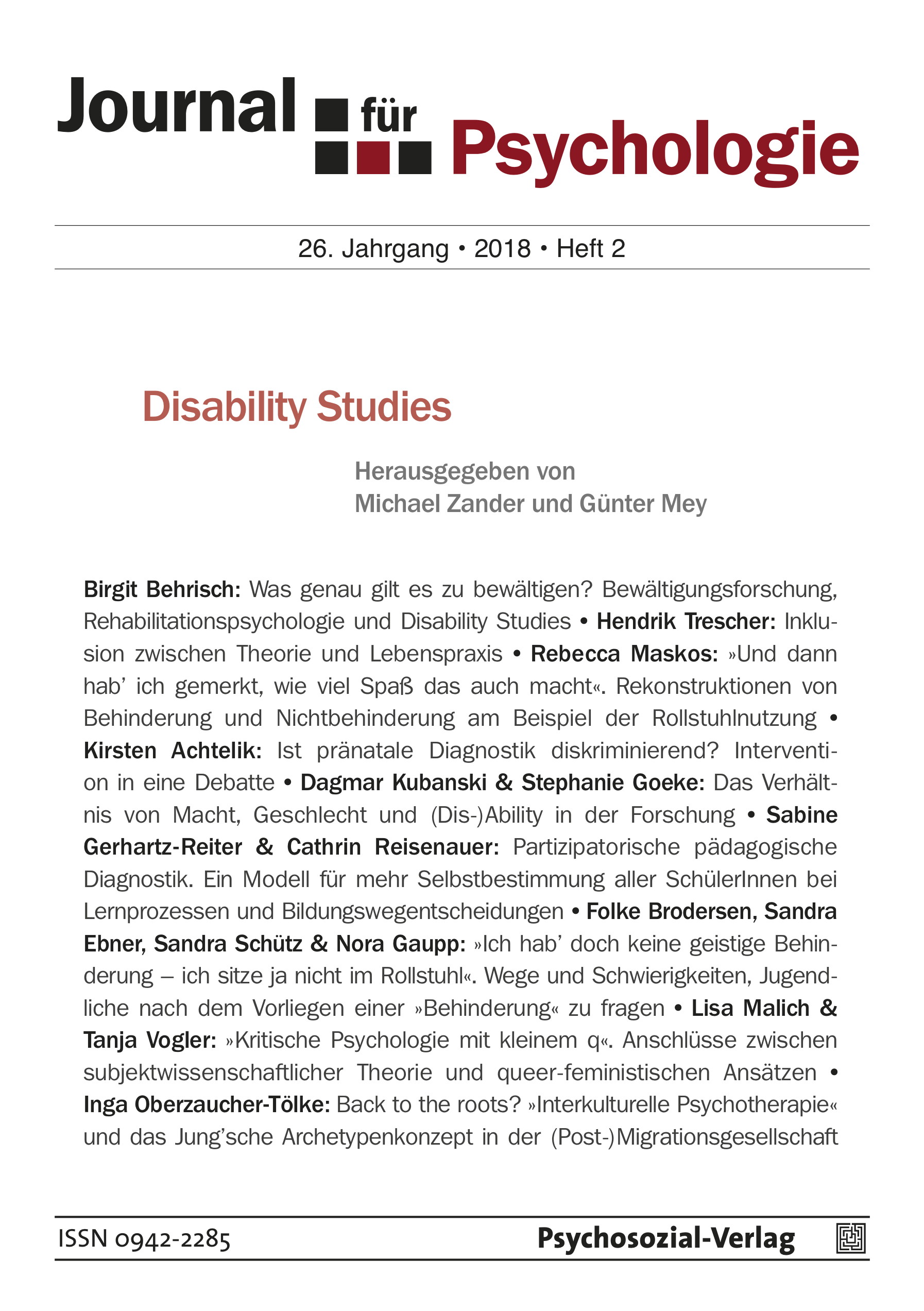Ist pränatale Diagnostik diskriminierend?
DOI:
https://doi.org/10.30820/8248.05Keywords:
prenatal diagnosis, disability, discrimination, ableism, social modelAbstract
Prenatal diagnosis is considered by disabled and feminist activists and scientists as ableist and discriminatory. This argument attracts a great deal of attention in ethical and political debates because the poorer treatment of minorities in democratic societies is considered illegitimate. However, the accusation of discrimination is also rejected as unjustified, especially by sociologists and ethicists. Although the argument is explicitly directed exclusively against prenatal diagnosis, abortion often seems to be the actual trigger for criticism after such a diagnosis. In this text I want to shed light on the somewhat confusing discourse and examine the various arguments. This requires a reflection on an adequate concept of discrimination as well as a clarification of the underlying model of disability. The considerations presented here open up further questions and a basis for the debate on the discriminatory effects of prenatal diagnosis.Downloads
Published
2018-11-21
How to Cite
Achtelik, Kirsten. 2018. “Ist pränatale Diagnostik Diskriminierend?”. Journal für Psychologie 26 (2):75-94. https://doi.org/10.30820/8248.05.
Issue
Section
Schwerpunkt
License
This license allows private use and unmodified distribution, but prohibits editing and commercial use (further information can be found at: https://creativecommons.org/licenses/by-nc-nd/4.0/).
The terms of the Creative Commons licence only apply to the original material. The reuse of material from other sources (marked with a reference) such as charts, illustrations, photos and text extracts may require further permission for use from the respective copyrights holder.



